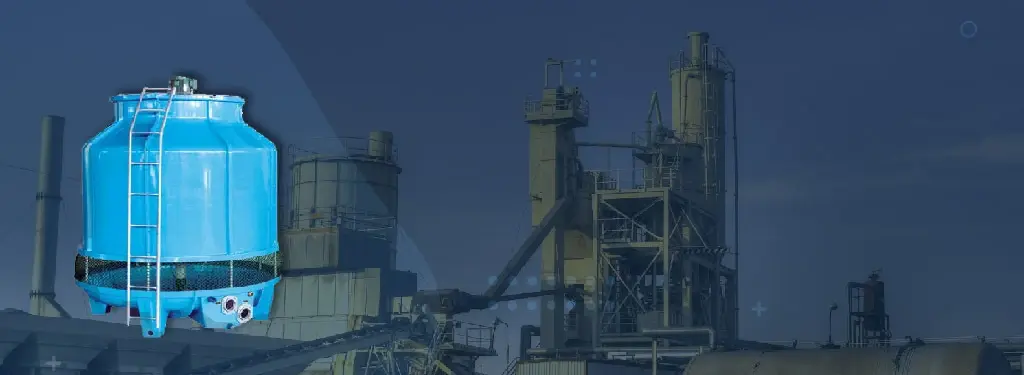What is a FRP Cooling Tower and How Does It Work?
Cooling towers form an integral component of many industrial processes and play an essential role in ensuring the proper temperature for equipment and machinery. Cooling towers are manufactured from a variety of materials, like FRP, metal, hyperbolic type, concrete, and wooden cooling towers. A Fiberglass Reinforced Plastic (FRP) cooling tower is defined by its durability and efficiency. Let’s explore the intricate details of the way FRP cooling towers function as well as their importance in industrial environments.
How the FRP Cooling Tower Works
FRP cooling towers come in different shapes, like round, square, cylindrical, and open-topped designs. These towers are used in industries to cool water temperatures. They work by taking in warm water from manufacturing processes and passing it through different types of heat exchange fill media inside the tower.
When air rises from the bottom of the tower, it meets the warm water running down through the fill media. This clever way of transferring heat helps the water release heat into the air more easily.
The design of the fill media ensures better contact between the water and air by exposing more water surface area. Also, the aerodynamic shape of FRP cooling towers boosts airflow, making the whole system work more efficiently.
Utilizing Evaporation to Reduce Heat
As warm water passes through the cooling tower, some of it evaporates into the air. This evaporation actually helps to lower the overall water temperature, making the cooling process more efficient.
Fans and Drift Eliminators
Fans positioned at the top of the tower push air through to keep a steady airflow. These fans are essential for keeping the cooling tower running smoothly, especially when it’s really hot.
Inside the tower, drift eliminators stop water droplets from escaping with the air. This ensures that very little water is lost while still maintaining cooling efficiency.
Controlling the Circulation of Water
After the water has been cooled down, it’s sent back into the industrial equipment to soak up more heat. This continuous loop of water circulation minimizes waste and saves resources effectively.
Conclusion
In simple terms, FRP cooling towers are advanced systems crafted to effectively control temperatures in industrial settings. They use evaporative cooling and smart heat exchange methods, playing a crucial role in many sectors. They help industries run smoothly while reducing their impact on the environment.
Knowing how FRP cooling towers work highlights their vital role in keeping industries functioning smoothly. They’re essential parts of industrial cooling systems, making a big difference in various fields.





